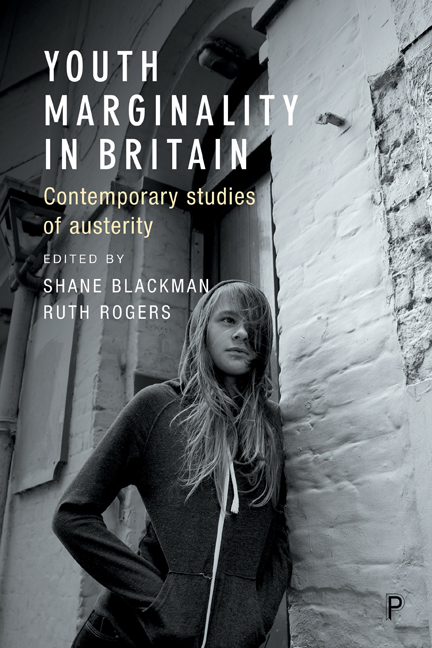nine - Responses to the marginalisation of Roma young people in education in an age of austerity in the United Kingdom
Published online by Cambridge University Press: 05 April 2022
Summary
Introduction
‘Fear, loathing and prejudice in Blunkett's back yard: A deeply disturbing dispatch as the ex-Labour Home Secretary warns of race riots over the Roma influx in Sheffield’ (Reid, 2013) is representative of media headlines in 2013 about the arrival of Roma people in Sheffield. Such events were reported as if they were commonplace; this resonated with the frequent media representations of English Gypsies as the ‘other’ (Bhopal and Myers, 2008) and earlier media reports of racism experienced by Roma in Northern Ireland in 2009. ‘Romanian gypsies beware beware. Loyalist C18 are coming to beat you like a baiting bear’ (McDonald, 2009) read the headlines, as they repeated a text circulated widely through social media. McVeigh (2009) argues that the media narrative about the experiences of Roma remains uncontested and consistent. I further suggest that such a discourse circulated in the media locates Roma as problematic, and is visible in education contexts where practitioners engage with Roma young people.
This chapter reports on research (Robson, 2012) emerging from the dilemmas of teachers and family workers as they worked in schools to include Roma young people in the United Kingdom (UK). The fieldwork took place between 2009 and 2011; at the end of this period, a newly elected Coalition government implemented a policy of austerity that led to significant reductions in public expenditure at a local level, with the consequence of services for children and families being ‘eradicated, reorganised or pared down as a result’ (O’Hara, 2014, p3). This study explored how the experiences of inequality and marginality for Roma young people were understood by teachers and family workers as they worked in this changing environment. It concludes with a discussion of what might shape a response that has the potential to reduce inequality and address injustice for Roma young people; in times of austerity, actions to address inequality and discrimination may not be constrained by the available resources.
A lived experience of inequality: perspectives from the literature
Roma young people and their families moved throughout Europe (including to the UK) from countries newly formed following the collapse of the communist regimes (for example the Czech Republic and Slovakia).
- Type
- Chapter
- Information
- Youth Marginality in BritainContemporary Studies of Austerity, pp. 149 - 162Publisher: Bristol University PressPrint publication year: 2017



